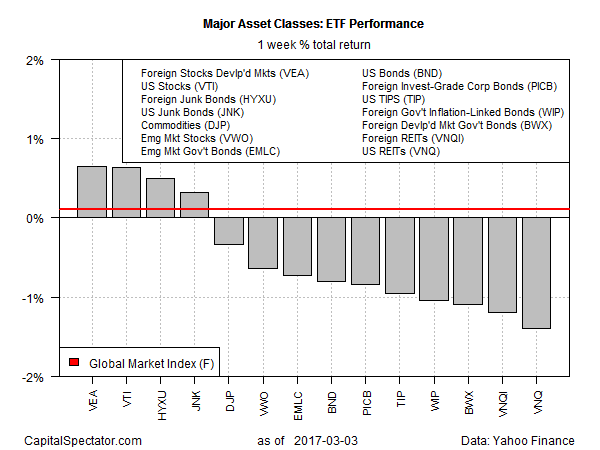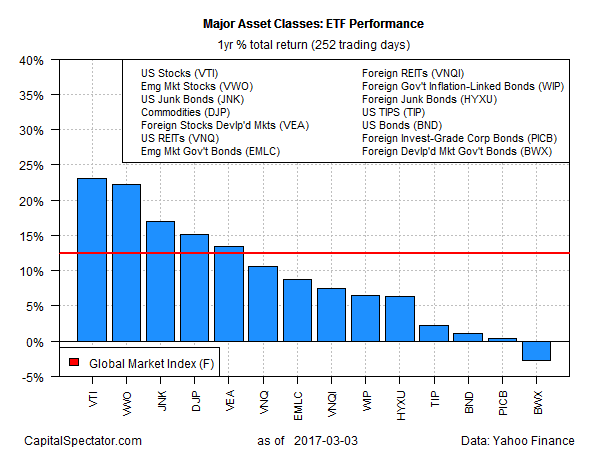Powered by modest gains last week in US and developed-market stocks, an investable version of the Global Market Index (an unmanaged benchmark that holds all the major asset classes in market-value weights) inched up 0.1% in the first week of March. The benchmark has advanced in every week since late January — the longest run of non-stop weekly gains in more than two years.
Stocks in the developed world posted the biggest rise last week among the major asset classes, based on a set of proxy ETFs. Vanguard FTSE Developed Markets (NYSE:VEA) rose 0.7% for the five trading days through March 3. The fund has climbed in every week so far this year save two.
The biggest loser last week: US real estate investment trusts (REITs). Although the asset class has been rebounding in recent months after a sharp selloff in the second half of 2016 through November, the revival stumbled in March’s opening week. Vanguard REIT (NYSE:VNQ) fell 1.4%, the biggest weekly setback for the ETF since January.

For the one-year window, US equities are back in the lead. Vanguard Total Stock Market (NYSE:VTI) is up a strong 23.1% for the 12 months through Friday. Although that’s well below the fund’s recent one-year-return peak of nearly 38%, which was briefly reached last month, the current 20%-plus annual total return is still well above the historical average for the US stock market.
The only loser in the one-year column for the major asset classes for the past year: government bonds in foreign developed markets. SPDR Bloomberg Barclays International Treasury Bond (NYSE:BWX) fell sharply last week, cutting the ETF by 2.7% for the trailing 12-month period.
The investable version of Global Market Index (GMI-F), meanwhile, continues to post solid year-over-year gains. At last week’s close, the benchmark was ahead by 12.5% in total-return terms.
For some perspective on what to expect from the major asset classes in the long run, here’s the current monthly estimate for risk premia projections.

